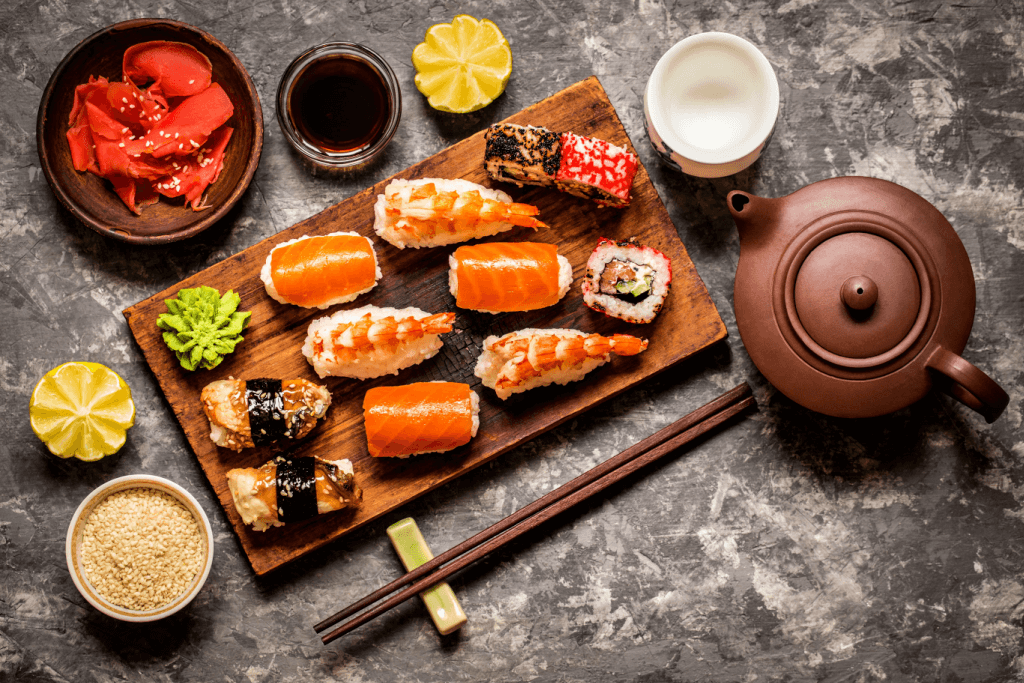It’s pretty safe to say that sushi is Japan’s most well-known cuisine. Known for its fresh, light flavors, it has become wildly popular worldwide over the last century. There are even cases of other cultures paying homage to it by creating their takes on sushi.
Read on to learn about our findings…
Table of Contents
ToggleThe World’s Most Searched for Sushi
To find the answer to our questions, we used data from Google. Thanks to their Keyword Planner tool, we’ve discovered how often people search for different kinds of sushi.
Top of the list is the American-born California roll, with 613,800 Google searches for keywords relating to it in April 2023. With its roots in 1960s Los Angeles, the dish has also become popular across the rest of the world.
In 2nd is temaki, with 365,830 Google searches in April. This cone-shaped dish is a more traditional form of sushi originating in Japan – a definite must-have for anyone trying sushi for the first time.
3rd, 4th, and 5th belong to uramaki, gunkan, and hosomaki, respectively. While uramaki is another Western-style sushi, gunkan, and hosomaki come from Japan.
Countries Most Obsessed with Sushi
Next, we delved into country-specific data. Each country’s number of searches for sushi-related keywords, when used in conjunction with the population sizes, allowed us to find out which countries have the highest proportions of their populace searching for sushi each month:
Overall, the country with the most significant proportion of searches for sushi turned out to be Canada at nearly 6%. Despite having a smaller population than many of the countries included in our research, at around 38 million, the country still managed to have the 3rd largest number of individual searches (totaling 2.17 million).
The United States had the largest number of individual searches, 11.2 million. Of course, this doesn’t come as a massive surprise, given the country’s population is well over 330 million. Despite that, the country had the 2nd highest percentage of the populace searching for sushi at 3.4%.
3rd place, meanwhile, belonged to Japan itself, with over 4 million searches and a searching populace of 3.2%. Some might say its high position in the rankings is rightfully earned, being the country that brought sushi to the world.
Each Country’s Most Loved Sushi Dish
Finally, we wanted to showcase the favorite sushi dish of each country we analyzed:
As with the worldwide data, we can see the popularity of the American California roll, most notably in many Western countries. However, results are more varied in some cases. Mexico and Brazil are big fans of temaki, while in Europe, Germany and Italy are lovers of tempura sushi and uramaki.
Methodology
The data for this study was gathered using Google’s Keyword Planner. This allowed us to discover the number of Google searches for keyword groups relating to different kinds of sushi globally and in specific countries.
If you’d like to view the full data spreadsheet, you can find it here.
Which kinds of sushi are your favorites? Is there any sushi that we missed? Let us know in the comments below!










